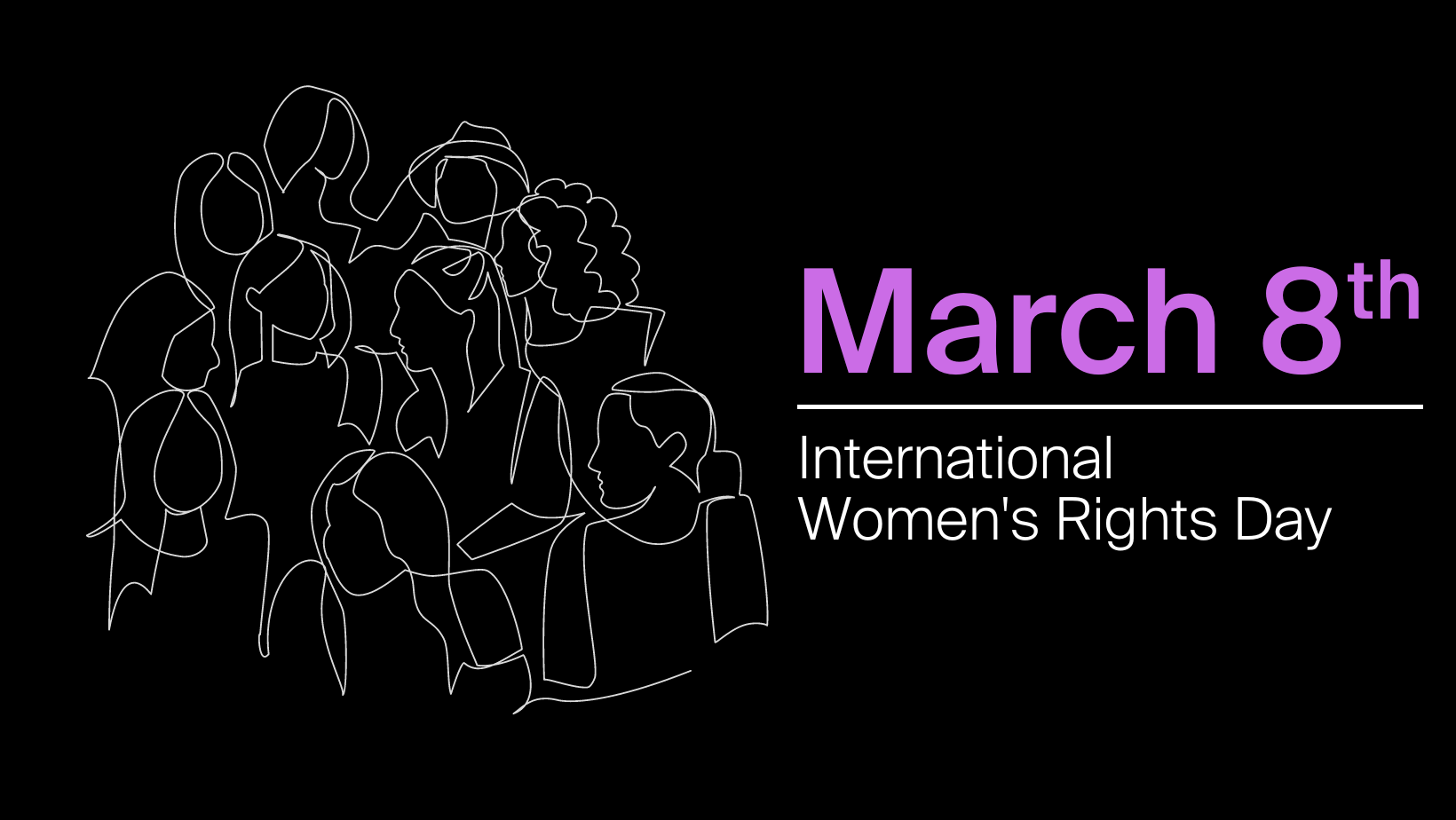
International Women's Rights Day
To mark International Women’s Rights Day on March 8th, we’d like to emphasize this moment of reflection, celebration and, above all, action, alongside our long-standing partners. This year, we celebrate the victories – large and small – in the fight for equality and autonomy for women in all their diversity. However, we must recognize that challenges remain on the road to autonomy and emancipation, particularly in regions where the rule of law still needs to be strengthened.
Remarkable progress, thanks to courageous women.
Over the years, women (including all those who identify with the female gender) have made remarkable strides in defending their rights, both in the public and private spheres. They have asserted their right to equality and claimed a rightful space in areas that were previously denied to them. They have won battles for sexual and reproductive rights, education, and political representation. They have fought against gender-based stereotypes and have contributed not only to achieving equality before the law but also in practice in our daily lives. These victories deserve to be celebrated as they represent the tireless efforts of many individuals who have dedicated their lives to the pursuit of justice and equality. In this spirit, we have compiled some inspiring stories in their honor in a playlist that we invite you to explore.
However, our work is far from over. Despite the progress made, women, particularly those at the intersection of multiple forms of oppression, still face systemic obstacles that hinder their full bodily autonomy.
Reproductive rights are human rights.
According to international standards1, every person has the right to decide about their own bodies, including if and when they wish to have children. However, sexual and reproductive rights remain a major issue for millions of people worldwide due to insufficient access to contraception, restrictive abortion laws, and gaps in health and education services. More alarmingly, these rights continue to be threatened globally2.
Furthermore, sexually and gender-diverse people often face additional challenges when seeking reproductive healthcare. The discrimination, stigmatization and prejudice they face hamper their access to services tailored to their specific needs. This reality underlines the urgent need to strengthen and reform reproductive health services to ensure that all people, regardless of their gender identity, can exercise their fundamental rights without discrimination.
Gender-based violence is a form of bodily control.
Bodily autonomy is inherently linked to the fight against gender-based violence. This violence, in all its forms, violates the physical and/or mental integrity of individuals and undermines their dignity. During conflicts, this violence is often exacerbated. For example, armed conflicts are the scene of sexual violence, genital mutilation, forced or early marriage, human trafficking and other forms of sexual violence. These acts not only constitute a flagrant violation of human rights and international humanitarian law, but also represent a direct attack on the autonomy and integrity of the bodies of women and people of gender and sexual diversity. This violence is also one of the most extreme forms of gender-based discrimination.
Promising advances thanks to legal empowerment.
The work of Lawyers Without Borders Canada and its partners is essential in promoting the bodily autonomy of women and people of sexual and gender diversity, by promoting legal empowerment. For example, human rights awareness educates communities about their reproductive rights and enables them to defend them (a process known as human rights appropriation). In addition, initiatives to strengthen justice systems, such as advocacy and strategic litigation, can help ensure that victims of gender-based violence access justice and receive reparation.
On this International Women’s Day, let us recommit to the fight for full bodily autonomy. Let us stand alongside all women worldwide and demand justice, equality, and respect for all. Together, we can create a world where every person has the freedom to make their own choices about their body, without fear or discrimination.
This March 8th, let’s celebrate the progress made together, but let’s also remember the journey ahead. Our work is not done until every person, regardless of their gender, has the autonomy and agency they deserve.
Discover our projects that tackle these crucial issues head-on:
1. Some examples of international standards (non-exhaustive list): Right to health (art. 12 ICESCR; art. 12 CEDAW; art. 14 Maputo Protocol); Right to life (art. 6 ICCPR; art. 2 ECHR); Right to privacy and the family (Art. 16 para 1e CEDAW); Right to physical, mental and moral integrity (art. 5 ACHR)
2. Secretary General warns of gender discrimination in technology, denounces setback to women’s rights and establishes Commission on the Status of Women – March 6, 2023. Online: https://press.un.org/fr/2023/fem2221.doc.htm